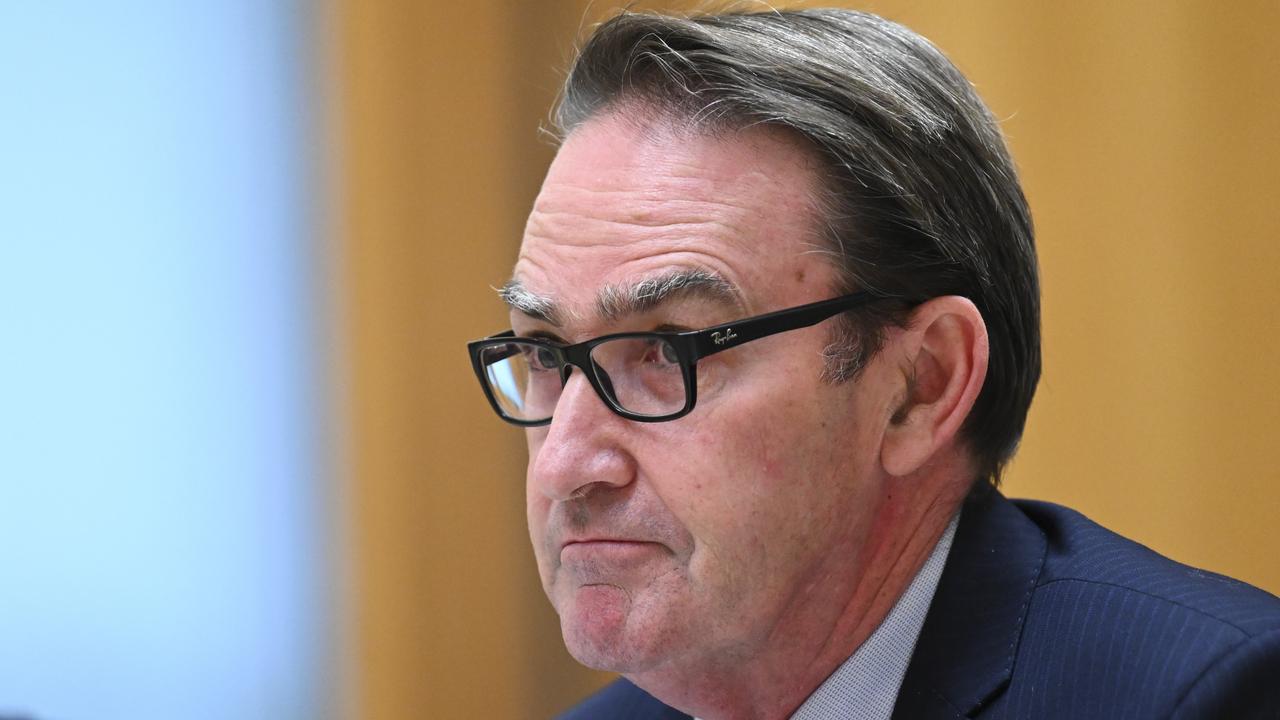Donald Trump’s China tariff plan would have ‘consequences’ for Australia, Treasury chief warns
Australia could face “consequences” if Donald Trump gets back into the White House, the Treasury chief says.
Australia would be a casualty in a US-China trade war if a re-elected Donald Trump hiked tariffs on Beijing, the Treasury chief warns.
Mr Trump has said he would impose a 60-100 per cent levy on Chinese imports if he won the presidency.
He said he would also slap a blanket 10 per cent tariff on all foreign imports.
Fronting senate estimates on Wednesday, Treasury secretary Steven Kennedy said officials had modelled the Republican candidate’s geo-economic ideas and warned that they would have “consequences” for Australia.

“There are some policies that the proponents in the US election have announced, including tariff increases and other types of changes,” he said, replying to a series of questions from opposition finance spokeswoman Jane Hume.
“And we thought it was worth the government understanding the impact of those policy changes not only potentially on the US but on our on major trading partners, such as China and other countries, and then … what the implications would be for Australia.”
He said the Treasury always carried out modelling “whenever we see potential significant changes”.
“The significant increase in tariffs would have implications for both the US economy and for China, and there would be flow-on consequences for Australia,” Dr Kennedy said.
“Of course, there’d be adjustments. Our models are general equilibrium models, so exchange rates adjust, and a variety of other things adjust, but in very in broad terms, the imposition of trade restrictions, such as tariffs, typically lead to lower growth and higher inflation.”
Pressed further on the modelling, which was released to the federal cabinet, Dr Kennedy said Mr Trump’s tariffs would increase inflation in the US while hurting growth in both the US and Chinese economies.
Growth in Australia would also take hit due to a slowdown in China.
“Some upside for inflation in the US, downside for growth in China, downside for growth in the US,” he said.
“The implications for Australia are more about growth because of the implications for China, of course, and their demand for our goods and there are lots of ons and offs, so the price impacts are more relevant to the US outcomes than they are to other countries.”
Independent modelling has found Mr Trump’s proposed tariffs could cost American consumers up to $80bn.
Counting is under way across the US after millions of voters cast their ballots on Tuesday (local time).
At the time of writing, Mr Trump was leading Kamala Harris 210 electoral votes to the incumbent Vice President’s 113.
Candidates need to secure 270 electoral votes to win the presidency.



